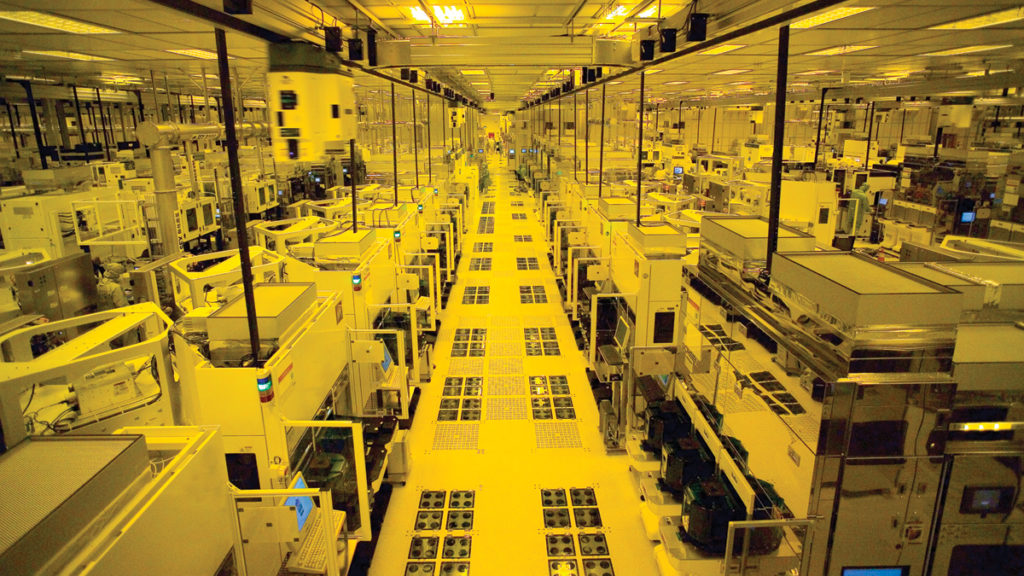
Semiconductor manufacturers in Taiwan are scrambling to recruit skilled workers. The current global chip shortage has created a perfect storm in which companies are hiring students before they can even complete their first year of college. Some are now calling this a chip talent war as companies from around the world try to hire a record amount of employees in numbers never seen before in the industry.
Ken Wu, who is a student at the National Yang Ming Chiao Tung University, has been receiving offers for the past two years. This has been happening while he works toward completing his doctorate. He stated he was unable to accept any full-time job offers.
“But I received emails and calls constantly from HR and even from some tech executives to see if I would like to schedule an interview with them to learn more about their company and departments,” Wu said.
Wu has since accepted a job offer to join Macronix as a senior engineer. Macronix supplies memory for Apple, BMW, and Nintendo. Such stories are becoming more common throughout the island as it tries to meet global demands. Since 2019, the industry has hired more than 65,000 employees in Taiwan. TSMC and MediaTek have stated that they plan to hire a total of at least 10,000 employees in 2022.
“The shortage of high-end chip talent will pose challenges to the overall development of the semiconductor industry for the future,” said Tsai Ming-kai (Chairman of MediaTek).
Nikkei Asia has compiled data from company statements, interviews, job postings, employment recruitment platforms, and various other sources regarding current job openings. Based on that data, it says there are presently over 2,000 openings from a long list of companies. The list looks like a veritable who’s who of chip manufacturers.
- AMD
- Intel
- Micron
- Novatek
- NVIDIA
- Phison Electronics
- Qualcomm
- Realtek
Martin Wong (President of Compal Electronics), a laptop manufacturer, has stated the ongoing shortage has exacerbated the efforts among smaller companies as they try to recruit.
“You see … MediaTek and TSMC are hunting for talent everywhere and we are also aiming to hire at least 1,000 this year,” said Martin Wong. “How are we going to hire enough people if we don’t raise our game? We even go to schools to promote our company, hoping these young people could get to know Compal before they graduate so we could increase our chances of grabbing them from other companies.”
Staffing shortages are not only affecting semiconductor manufacturers in Taiwan but also companies who supply equipment to them. ASML is one such company that has found itself competing with its own clients in bids to recruit employees. Peter Wennink (President and CEO of ASML) expressed how they have to compete on multiple fronts for staff.
“Everybody is growing so fast. In Taiwan, we are competing with TSMC,” Wennink said. “In Korea, we are competing with Samsung and SK Hynix. In the U.S. we are competing with Intel and Micron, and we are competing with Apple and Qualcomm.”
A professor at a local university has said that the majority of his students have found employment opportunities within their first year of graduate school. A consulting agency has added that a boost in salaries is also occurring throughout multiple sectors in order to support the semiconductor industry as well. Presently, the monthly minimum wage in Taiwan equates to around $906, while workers in the semiconductor industry can start with a salary nearly double that. In some cases, there are those who can make upward of triple the minimum wage, not including bonuses and other incentives.
Unfortunately, Taiwan had previously seen a sharp decline of nearly 25,000 STEM graduates from 2011 to 2019. As this trend had precipitated the needs brought on by the pandemic, it has, coupled with other factors, only further hindered the industry’s efforts to meet global demands. From AMD CEO Dr. Lisa Su to an analyst firm, there have been multiple statements that the chip shortage could be coming to an end in 2022–2023. However, those optimistic outlooks may not have considered the potential staffing shortages for semiconductor manufacturers in Taiwan that could be adding to the ongoing dilemma.
Source: Nikkei Asia (via PC Gamer)
